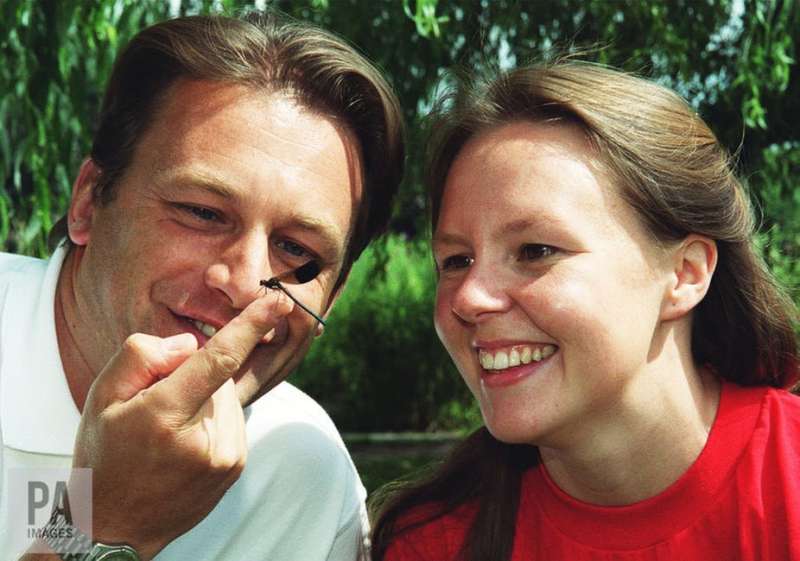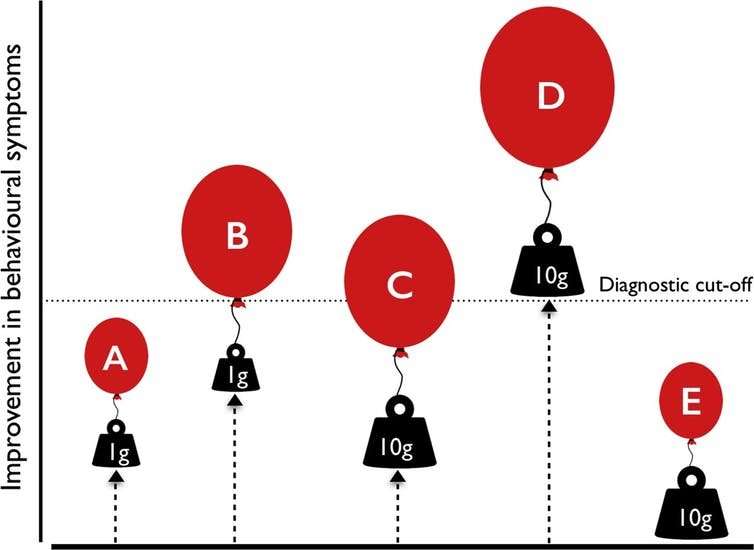How coping mechanisms help autistic people

In a recent documentary, naturalist and wildlife presenter, Chris Packham, talked about having Asperger's Syndrome, a form of autism. It was a rare snapshot into the life of an adult with Asperger's – and especially so as Packham only realised this in his 40s. Packham said he "spent 30 years on the telly trying [his] best to act normal."
Though some of Packham's experiences may have come as a surprise to viewers – who may have been expecting a "social outsider," not an award-winning television presenter with a long-term girlfriend – they fit with new research on how some people with autism use their psychological strengths and special interests to manage their difficulties in social situations.
People with autism have difficulties socialising and communicating with other people. They also have restricted behaviours – sticking to strict routines or following rituals – and special interests, which can lead to extensive knowledge about a particular topic.
In the film, Packham described how his own special interests helped him become a wildlife expert: "I had something that my peers didn't … a vast encyclopedic knowledge of the natural world." He also described making mental lists about things he should and shouldn't say in social situations at work.
Autistic people, like Packham, develop these compensatory strategies to cope with their difficulties. They can use non-social skills, such as their attention to detail, logical thinking, and the aforementioned special interests, to help them deal with social situations and jobs that involve other people.
This process has been described in a new theory on autism that explains how autistic people can develop compensatory strategies to deal with things that might not come naturally to them.

How compensating works
Take a look at these balloons, which represent five different autistic people:
The weights represent the psychological struggles (for example, trouble understanding people) that "weigh down" autistic people, leading to more symptoms. The balloons represent the compensatory strategies that "lift them up," and reduce their symptoms helping them to manage their condition.
This theory helps to explain why autistic people can be so different from each other. Some autistic people, like the person represented by balloon E, have many psychological difficulties but few compensatory strategies leading to more autistic symptoms. Other people with autism, like D, might have so many strategies they no longer reach the diagnostic criteria for autism. So although compensatory strategies might be useful, if they prevent a person being diagnosed, it may mean they don't get the help they need. Compensating can make it difficult for others to notice that someone is autistic, which might explain why some people, like Packham, are not diagnosed until adulthood.
Another challenge is that compensatory strategies involve mental effort. This can take a lot of energy, and sometimes leads to health problems such as stress and anxiety. Packham describes this experience in the film, saying, "[my strategies] were exhausting and I would get upset with myself when they were failing." This means that autistic people who compensate well for their psychological difficulties might need other kinds of support, particularly when dealing with the mental effort needed to get by in social situations.
If autistic people are helped to use their psychological strengths – in schools, universities and the workplace – they may be able to cope well in these settings. There are schemes to help autistic people move from school to higher education, and they can sometimes get ongoing support at university. There is also a small but growing set of companies actively seeking the psychological skills of people with autism.
Autistic people can offer a unique perspective and often enjoy doing difficult technical jobs because of their good attention to detail. But this is just the beginning, we need more of these schemes to help older adults with autism cope with the pressures they face in every day life.
More research into compensatory strategies in autism is needed too. We are keen to hear from autistic people about how they deal with social situations to learn more about the condition. This research could feed into new and existing support schemes, so that more autistic people are able to reach their full potential, just like Packham.
This article was originally published on The Conversation. Read the original article.![]()



















